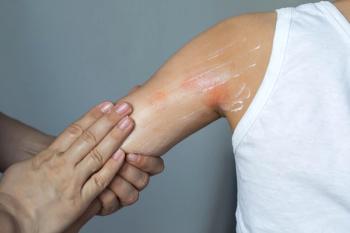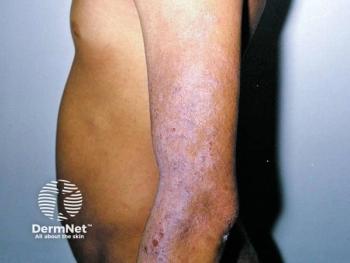
- Dermatology Times, Psoriasis Supplement, August 2021 (Vol. 42, Supp. 02)
- Volume 42
- Issue 2
French Results Echo Expert Findings
According to a study in Annals of Dermatology and Venerology, pediatric patients with psoriasis in France frequently missed dermatologic consultations.
According to a study in Annals of Dermatology and Venerology,1 June 2020, pediatric patients with psoriasis in France frequently missed dermatologic consultations.
Half the children who were receiving treatment for psoriasis stopped it, and almost 1 in 4 could not adhere to the very measures meant to keep them safe: mask wearing and hand sanitizing.
More than 27% of study participants canceled in-office dermatologic consultations, over 9% reported that their concerns about going to a doctor kept them from an office visit, and nearly 23% said it was difficult to adhere to hygiene measures because of the need to use irritating hand sanitizers and handwashing routines, as well as mask wearing.
Health care access was also affected during the lockdown. More than 41% of pediatric patients in the study had a dermatologic consultation for psoriasis during lockdown, with about 71% reporting their visits were by teleconsultation. Nearly 40% of those patients said the consultation was because of worsening psoriasis, and about 21% said it was for pandemic-related issues
Additionally, accessing hospitals was difficult during the lockdown in France, according to Emmanuel Mahé, MD, head of dermatology at Argenteuil Hospital Center in Paris. “In our department all consultation activity, except teleconsultation, was stopped for 2½ months,” he said.
Although the study was small, it provided a snapshot of how children who have what can be serious skin diseases suffer during a lockdown. “These ‘invisible’ results...illustrate the difficulties of these children and must be integrated into our care,” Mahé said
Mahé and colleagues found that nearly 72% of the children surveyed had psoriasis lesions during the lockdown. More than 45% were receiving systemic treatments and nearly 19% stopped those treatments, mainly for reasons they linked to the pandemic.
COVID-19–related considerations were not the only reason for the decrease in consultation.
At the time, doctors and patients had conflicting concerns about the potentially harmful effects of immunosuppressive drugs used to treat chronic diseases such as psoriasis. One concern had to do with a potentially heightened risk of severe COVID-19 that was associated with the use of immunosuppressive drugs.
Another was the warning that discontinuing systemic treatment or failing to start it could worsen chronic skin disease.
Reference:
1. Beytout Q, Pepiot J, Maruani A, et al; Association France Psoriasis; Research Group on Psoriasis of the French Society of Dermatology (GrPso); Research Group of the French Society of Pediatric Dermatology (SFPD). Impact of the COVID-19 pandemic on children with psoriasis. Ann Dermatol Venereol. 2021;148(2):106-111. doi:10.1016/j.annder.2021.01.005
Articles in this issue
over 4 years ago
Find the Difference: Drug-Related Psoriasisover 4 years ago
PeDRA Lists Systemics With Higher COVID-19 Riskover 4 years ago
Studies of Commonly Used Supplements for Psoriasisover 4 years ago
3 Dietary Considerations for Psoriasisover 4 years ago
Transform Pandemic Lessons Into Actionable Care Plansover 4 years ago
Psoriasis, Metabolic Syndrome Connection ExpandsNewsletter
Like what you’re reading? Subscribe to Dermatology Times for weekly updates on therapies, innovations, and real-world practice tips.











